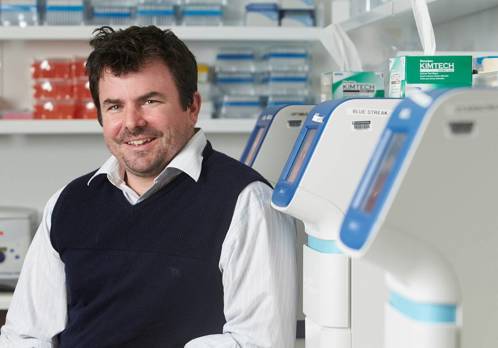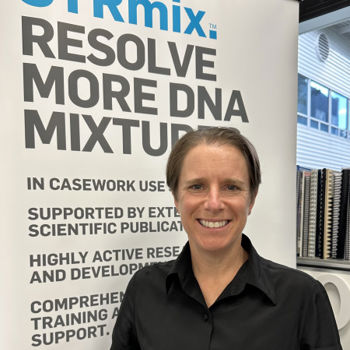Ngā huingaira
Genomics
By studying the genetic instructions of living organisms, ESR is helping to improve our health and the health of the world around us, for a better Aotearoa.
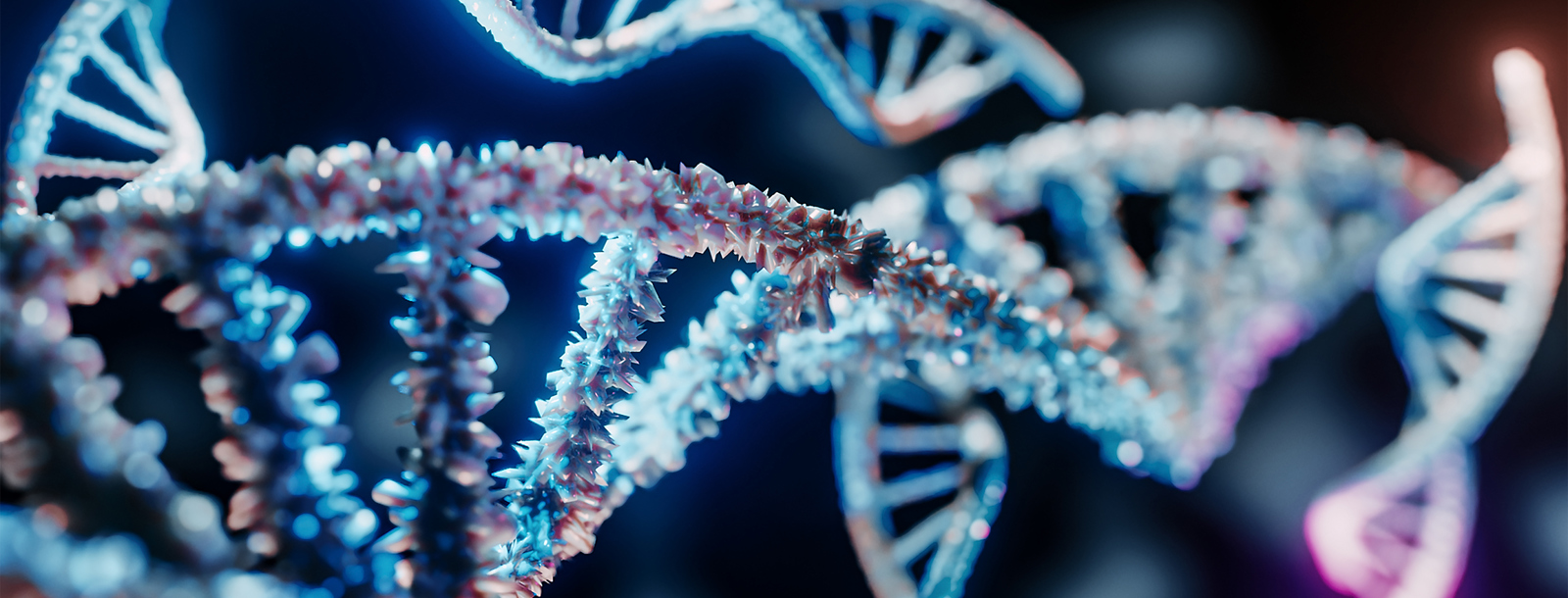
About
Our research in genomics, a fast moving and evolving field of science, covers many areas, like studying humans, the environment, and solving mysteries in forensic research using DNA clues.
Every living thing, from microbes to people, has its own DNA, containing a set of instructions called a genome. This genome tells an organism how to function, grow and stay healthy. By studying genomes, ESR is learning more about taking care of ourselves and our environment.
We're also helping scientists in Aotearoa work together to get better at understanding genomes, so everyone can benefit from knowledge of genetic code.
ESR has genomics and bioinformatics expertise and capability which includes:
-
Forensic biology, including DNA and mRNA expertise
-
Analysis and advice on the behaviour of pathogenic bacteria and viruses in biowaste, soil and water
-
Identification of virus and bacteria relevant to public health
-
Water microbiology testing and research
-
Food forensic investigations to identify source in foodborne disease
Microbial Genomics
Microbial Genomics
Microbial genomics is a technology that gives us information about the genomic sequence of harmful pathogens. Microbial genomics can provide us with information about the DNA make up of different bacteria and viruses, including harmful ones that cause human illness.
The use of microbial genomics spans multiple areas of field of research across ESR.
Microbial genomics at ESR
Human health
-
Public health surveillance of notifiable diseases that cause human illness. Learn more.
-
Viral detection in wastewater. Learn more.
-
ESR uses the latest technology to provide its next generation sequencing capacity and performs the national sequencing for all COVID-19 positive samples. We use a combination of platforms to obtain the most reliable genome data, these technologies are supplied by Illumina and Oxford Nanopore.
-
Clinical genomics led by Dr Rhys White. Collaboration with Dr Max Bloomfield, Awanui Labs, based at the Wellington Regional Hospital.
-
ESR also manages the Genomics special interest group, and the New Zealand Microbiology Network.
Environment
-
Faecal source tracking.

Human Genomics
Human Genomics
The human genome is made up of 22 autosomes and a pair of sex chromosomes. A genome sequence establishes the order of DNA nucleotides or bases (A, C, G, and T) that make up an organism's DNA. This information is critical to understanding how our bodies develop and function. Our human genomics work includes:
-
Collaborating with clinicians and surgeons at Wellington Hospital with the aim of bringing the benefits of lower cost, quicker turn-around sequencing to aid in clinical decision making.
-
DNA methylation, transcriptomics and small non-coding RNA and their role and utility as biomarkers in metabolic diseases - in particular obesity and type-two diabetes. This incorporates a Social Systems aspect to understand what makes a successful community-led intervention and is part of Healthier Lives He Oranga Hauora National Science Challenge.
-
Affordable, disruptive sequencing for community empowerment.
Genomics Aotearoa Consortia
Genomics Aotearoa consortia
ESR is a partner in Genomics Aotearoa, a science platform supporting advanced genomics research in New Zealand. It is an alliance between New Zealand Universities and Crown research institutes, which provides a collaborative platform to grow New Zealand’s capability, build international connections and develop tools and technologies to support genomics research.
Campylobacter fetus subspecies: Comparative genomics and prediction of potential virulence targets
The genus Campylobacter contains pathogens causing a wide range of diseases, targeting both humans and animals. Among them, the Campylobacter fetus subspecies fetus and venerealis deserve special attention, as they are the etiological agents of human bacterial gastroenteritis and bovine genital campylobacteriosis, respectively. We compare the whole genomes of both subspecies to get insights into genomic architecture, phylogenetic relationships, genome conservation and core virulence factors. Pan-genomic approach was applied to identify the core- and pan-genome for both C. fetus subspecies and members of the genus. The C. fetus subspecies conserved (76%) proteome were then analyzed for their subcellular localization and protein functions in biological processes. Furthermore, with pathogenomic strategies, unique candidate regions in the genomes and several potential core-virulence factors were identified. The potential candidate factors identified for attenuation and/or subunit vaccine development against C. fetus subspecies contain: nucleoside diphosphate kinase (Ndk), type IV secretion systems (T4SS), outer membrane proteins (OMP), substrate binding proteins CjaA and CjaC, surface array proteins, sap gene, and cytolethal distending toxin (CDT). Significantly, many of those genes were found in genomic regions with signals of horizontal gene transfer and, therefore, predicted as putative pathogenicity islands. We found CRISPR loci and dam genes in an island specific for C. fetus subsp. fetus, and T4SS and sap genes in an island specific for C. fetus subsp. venerealis. The genomic variations and potential core and unique virulence factors characterized in this study would lead to better insight into the species virulence and to more efficient use of the candidates for antibiotic, drug and vaccine development.
Exploring the depth and breadth of the genomics toolbox during the COVID-19 pandemic: insights from Aotearoa New Zealand
Genomic technologies have become routine in the surveillance and monitoring of the coronavirus disease 2019 (COVID-19) pandemic, as evidenced by the millions of SARS-CoV-2 sequences uploaded to international databases. Yet the ways in which these technologies have been applied to manage the pandemic are varied.
Real-Time Genomics for Tracking Severe Acute Respiratory Syndrome Coronavirus 2 Border Incursions after Virus Elimination, New Zealand
Since severe acute respiratory syndrome coronavirus 2 was first eliminated in New Zealand in May 2020, a total of 13 known coronavirus disease (COVID-19) community outbreaks have occurred, 2 of which led health officials to issue stay-at-home orders. These outbreaks originated at the border via isolating returnees, airline workers, and cargo vessels. Because a public health system was informed by real-time viral genomic sequencing and complete genomes typically were available within 12 hours of community-based positive COVID-19 test results, every outbreak was well-contained. A total of 225 community cases resulted in 3 deaths. Real-time genomics were essential for establishing links between cases when epidemiologic data could not do so and for identifying when concurrent outbreaks had different origins.
Specialist services
Specialist services
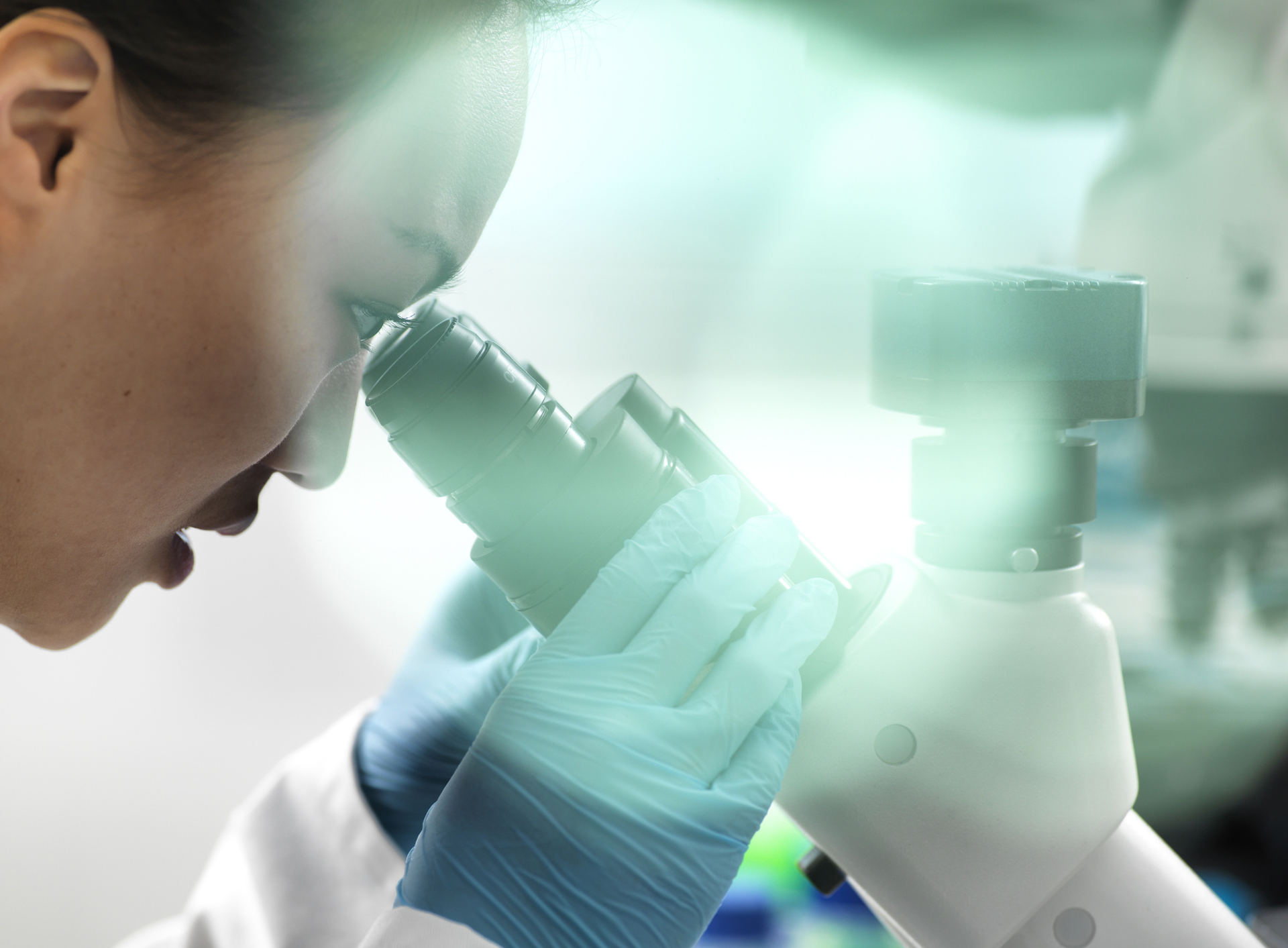
Our genomic experts use the latest technology to provide next generation sequencing across many of our focus areas, including forensic biology, foodborne pathogens and faecal source tracking.
Commercial sequencing service and bioinformatics
About
ESR can provide sequencing and bioinformatics services to fit customers’ requirements. Scientific support is available from our scientists who can provide expert advice as to the best options and interpretation of results.
How does it work?
Step 1
ESR cultures the isolate from your company, and extracts the
DNA ready for sequencing.
Step 2
Our scientists sequence the genome of the isolate which is
used initially to provide an identification of the microorganism.
The genome sequence can also be used to investigate the
genetic relationship between bacterial isolates obtained from
different sources. We use tools such the classical seven-gene
Multilocus Sequence Typing (MLST), and whole or core MLST
which is based on 1,000’s of genes to identify isolates that
are closely related. Depending on the species and questions
asked we can also use single nucleotide polymorphism (SNP)
analysis, which can determine the genetic relationship using a
reference genome. The analysis process can be performed on
multiple genome sequences at a time.
Step 3
ESR provides you with a confidential report explaining the
methods, quality controls and analysis used to generate and
analyse the genome sequence of the isolate(s) sent.
Pricing and timing
Pricing varies according to the species, number of samples submitted and urgency of your timeframe. Timing depends on the sample size, and we can work on a case-by-case basis to create faster turnaround times in certain situations. The
bioinformatics analysis required to answer your question may also influence the overall cost.
Contact us via genomesr@esr.cri.nz to discuss options and ensure the best possible results from the GenomESR service.
Data and handling and security
The isolates and results remain the property of the client and will be kept confidential. The sequence data outputs will be incorporated into the ESR database for future reference use by the client. ESR will always ask permission before using data for any research or publication purposes. ESR will store the raw sequence files and they are available for the client if required.
An option to upload the files onto the public NCBI Sequence Read Archive with minimal isolation information
(species, country, year and ‘food’ isolate label) is available for long-term storage and does not incur an ongoing cost. No client or further isolation information is included in this option.
Alternatively, long term private storage of data is available and
may incur an additional annual cost. The extracted DNA from client samples will also be stored for one year. The client may request the return of the DNA and remaining sample following
completion of the sequencing project.
Testing & analysis
Testing & analysis services
Testing & analysis services
ESR combines state-of-the-art genome sequencing with advanced scientific expertise to identify environmental, food safety and quality issues and help solve complex problems.
Check out ESR's latest news and insights on genomics

Innovative hospital genomic surveillance system detects early outbreak of serious gut infection
21 May 2024
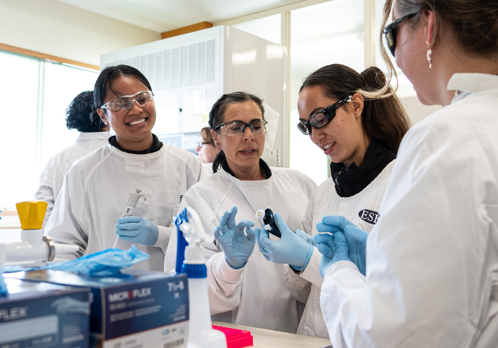
Inspiring game changing thinking: ESR genomics boot camp in partnership with Pūhoro STEMM Academy
01 May 2024

World Creativity and Innovation Day 2024: healthier communities through bioinformatics
15 April 2024

Genomics research to boost Aotearoa New Zealand’s defences against highly pathogenic bird flu
11 March 2024

Surprising discovery: parrots, pigeons and penguins share Chlamydia strain connections across Australia and Aotearoa
01 August 2023
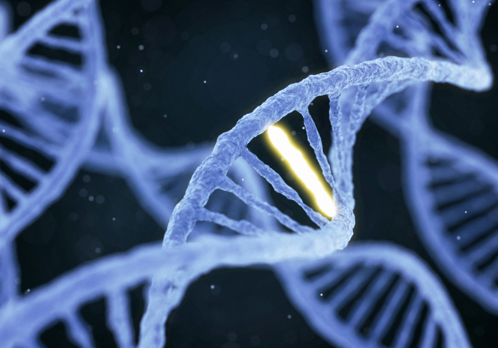
ESR scientists contribute to new publication exploring Aotearoa’s ground-breaking genomics toolbox for tackling COVID-19
19 June 2023
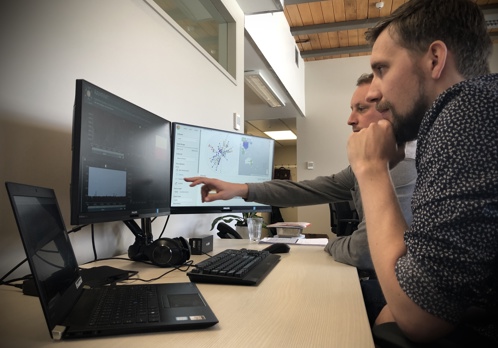
Genomics, the internet and the future
04 April 2023

ESR Genomics Week: online (7-11 November 2022)
28 October 2022
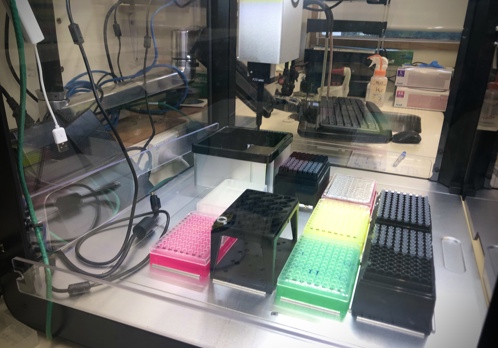
Expert opinion: why studying the origins of SARS-CoV-2, its variants and relatives matters
22 December 2021
